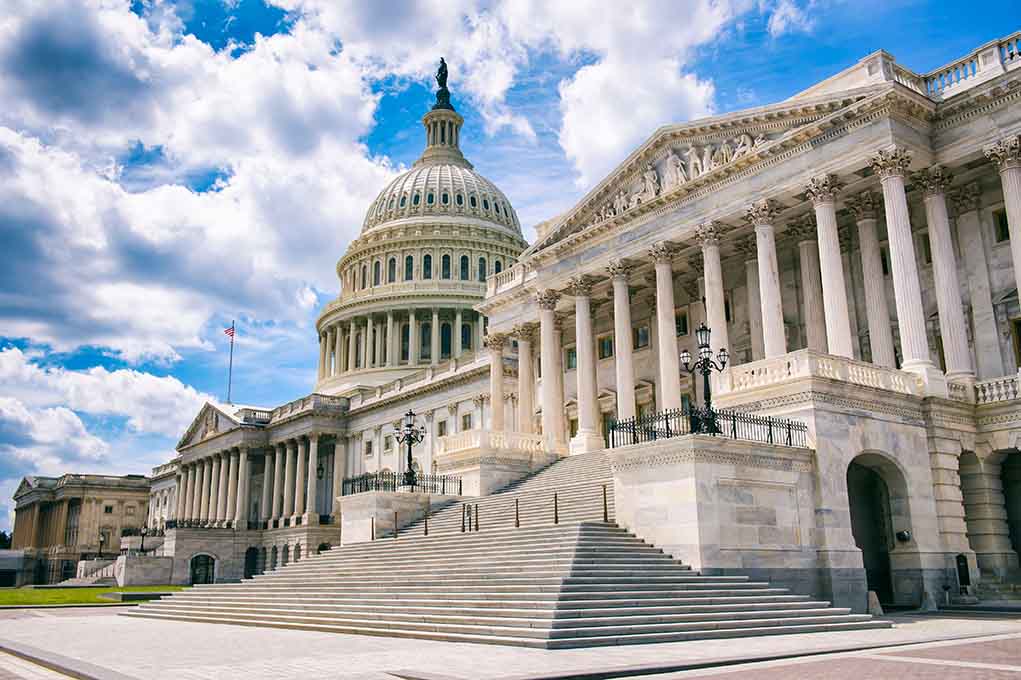
Senator Dick Durbin’s decision to retire in 2026 leaves significant questions about the future of Democratic leadership and policy directions.
Key Takeaways
- Sen. Dick Durbin, a major figure in the Democratic Senate hierarchy, will not run for another term.
- His retirement opens up a key leadership role and a potential competitive primary race in Illinois.
- Durbin played a formidable role in legislative affairs, including immigration and criminal justice reform.
- Durbin’s departure aligns with a broader trend of Democratic retirements before the 2026 elections.
- Speculation on his replacement includes several ambitious Democratic figures who may seek to take his seat.
Durbin’s Departure: A Turning Point for Senate Democrats
Dick Durbin, a preeminent figure in Senate politics, announced he won’t seek re-election in 2026, an announcement that rocks Democratic leadership dynamics. Since 1996, Durbin has been a pivotal voice on many issues. His departure, communicated via social media, invites contemplation on the generational leadership transition amidst altering political constellations. Republicans like Nick Puglia of the National Republican Senatorial Committee perceive this shift as Democrats retreating as their policies alienate core voters.
Durbin’s career spanned over four decades, beginning in 1982 in the House before transitioning to the Senate. The 80-year-old serves as the Senate’s fifth-most senior member. His accomplished tenure is highlighted by his stewardship of federal judicial nominations and landmark legislative achievements—most notably, co-authoring the DREAM Act, an integral piece of immigration reform.
Implications for Illinois and Democratic Strategy
Durbin’s decision triggers a potential scramble for his Senate seat in Illinois. Prospective candidates emerge, depicting varied visions for the party’s direction. State and national Democratic leaders unanimously commend Durbin’s contributions. Yet, the path forward in retaining such a historically Democratic seat amidst shifting voter sentiment is uncertain. Maeve Coyle optimistically predicts Democrats will maintain control despite recent Republican gains under Trump.
Durbin’s ally, Senate Minority Leader Chuck Schumer, praises his enduring public service record. Durbin’s involvement in historic reforms, such as supporting the Affordable Care Act and voting to convict Trump during impeachment, underscores his impact. Yet, his exit exemplifies a drift of seasoned Democrats as the party addresses intra-party ideological tensions amid rising costs and policy disputes impacting everyday Americans.
ILGOP Statement on Dick Durbin Decision to Retire After 44 Years In Congress pic.twitter.com/jRuI0o8xNX
— IL Republican Party (@ILGOP) April 23, 2025
The Next Chapter for Senate Leadership
The intrigue over who might ascend to Durbin’s influential roles is high, with political operatives and strategists watching closely. Decades of accrued wisdom leave a vacuum for rising leaders like Sens. Brian Schatz and Amy Klobuchar, who are viewed as potential successors. While Durbin has helped shape policies affecting millions, strategists ponder how his leaving will realign the Democrats’ priorities, especially in counteracting conservative policies.
As Durbin concludes his distinguished 44-year legacy in Congress, his departure at a time when Democrats face substantial electoral challenges upends existing dynamics. With Senate Democrats needing to safeguard seats while flipping GOP-claimed ones, the party confronts trials testament to the evolving—and often contentious—landscape of American governance.
Sources:
- Longtime Democratic Sen. Dick Durbin won’t seek re-election in 2026
- Dick Durbin, No. 2 Senate Democrat, won’t seek re-election
- Top Democratic senator announces retirement after 44 years in Congress | Blaze Media

